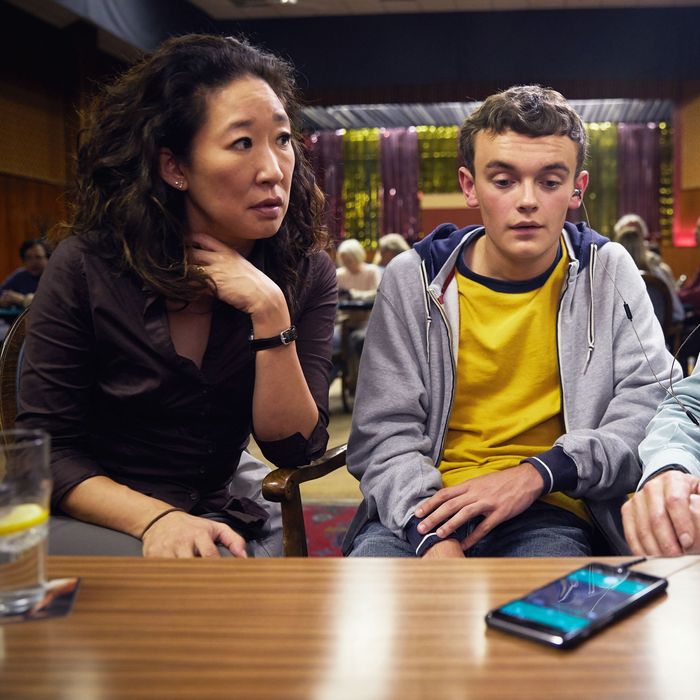
London Spy’s innovation is in the way that the sexuality of its characters intersects with a standard spy mystery to explore some concepts that popular culture hasn’t yet fully reckoned with. Given the potential, though, the show’s flaws are frustrating. The twist of the first episode really isn’t hard to guess at (and has been mentioned in some of the show’s advertising)-and yet it’s unveiled with such deliberation and patience that it feels like something from a great horror film. And the drip-drop pacing allows for some exquisitely terrifying climaxes. Those strong character relationships feel all the more real because of the amount of time spent with them. To be fair, the storytelling does pay off frequently enough that I don’t regret having sat through the whole thing. Five episodes might sound like a perfect, lithe treatment for such a tale, but the truth is it really only needed two or three.

The time-killing isn’t justified by the central mystery, the solving of which turns out to be neither very shocking nor complex: Of all the possibilities suggested by the show’s inciting incident, one of the least interesting ends up being true. Outside of having potential screensaver value for Whishaw superfans, there’s nothing useful about seeing Danny wander idly through a hedge maze, or gloomily swim in slow motion, or contemplate the Thames over and over again.
#AMERICAN ESPIONAGE TV SERIES FULL#
The need to occupy almost a full hour per episode seems to have resulted in lots of filler, presented, unconvincingly, under the guise of artful mood-setting. But the medium, at least as it’s approached here by the creator Tom Rob Smith and the director Jakob Verbruggen, doesn’t quite work to London Spy’s advantage, even though the show is visually gorgeous, wonderfully performed, and competently written.

On TV, it’s rare for all these currents to converge so smartly. The characters have been deeply shaped by the closet and social expectations. There are other sexuality-related factors here, too: the effects of AIDS in the past and present, the exploitative dynamics created when a group must exist on society’s margins, and the eagerness of the mainstream to lump all gay people into one amoral, kinky mass. All three men are terminally lonely for different reasons with similar root causes the show’s plot is plausible only because of the palpable desperation that has led them to form iron commitments to one another. That’s also true of Danny’s mentor, Scottie (Broadbent, kindly menace incarnate), a bureaucrat whose life story would have been very different had he been straight. Then something horrible happens, and the show turns from muted romance to terrifying mystery.īoth characters have been deeply shaped by the closet and social expectation, though in Alex’s case there are quite a few more layers of repression to peel back. The two strike up a yin-yang love affair featuring beach walks and slow sex and very laconic conversations.

He meets the mysterious and handsome Alex, who more fits the Alan Turing mold: His long-ignored desires coexist with and maybe even fuel savant-like brilliance (Edward Holcroft’s deep voice and heavy-tongued speaking style even recall Benedict Cumberbatch, who played Turing in The Imitation Game). His drug use, promiscuity, and aimlessness fit the archetype of a “party boy” the show wants viewers to see those traits as coping mechanisms for something. Its gayness is the most interesting thing about it.īen Whishaw, reconfiguring the ratio of nervous anxiety to dreamy self-possession he displays as Q in the recent James Bond movies, plays the hero, Danny. But London Spy, which debuts on BBC America tonight, isn’t one of them. In an interview with The Guardian, the supporting star Jim Broadbent summed it up: “It’s not a gay story … It’s about these particular guys, who happen to be gay, who are in the midst of this maelstrom of an unfolding tale.” There are, to be sure, many stories where the presence of same-sex romance is merely incidental. But it’s worth noting that one argument supposedly in the show’s favor isn’t quite accurate. Stevens’s review already received some backlash.


 0 kommentar(er)
0 kommentar(er)
